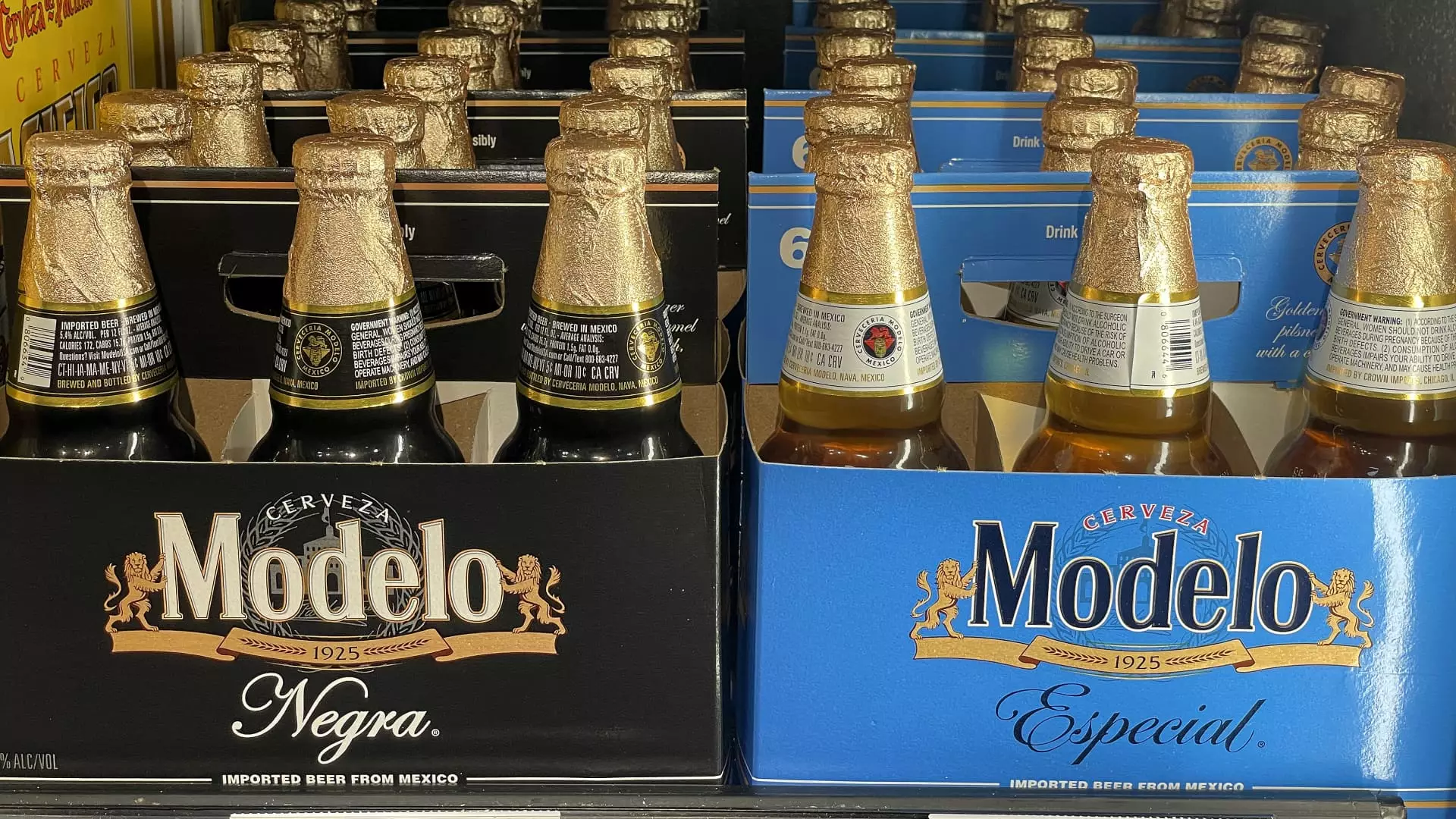Constellation Brands’ recent financial struggles reveal more than just a fleeting dip in sales; they expose the dangerous influence that political climates exert on vulnerable market segments. While the company attributes a 2% decline in beer sales to broader economic fears, a deeper analysis suggests that targeted political actions—specifically President Donald Trump’s aggressive immigration policies—are eroding consumer confidence among Hispanic Americans. This demographic, which historically constitutes the backbone of Constellation’s market, is clearly feeling the economic and social pressures created by hard-line deportations and immigration raids. These policies don’t just impact immigration figures; they reverberate through entire industries, dampening demand and sowing uncertainty in communities that are critical to business success. Such a climate of fear hampers spending, especially on discretionary items like beer, which is often associated with social and familial gatherings.
Economic Fears: The Silent Killer of Market Stability
It is telling that CEO Bill Newlands mentions inflation and rising costs as factors affecting consumer spending, but the real factor might be the climate of insecurity fostered by government policies. When large segments of the population perceive a threat to their stability—be it economic, social, or physical—their willingness to spend diminishes significantly. Hispanic consumers, forming about half of Constellation’s sales, are hit hardest because they are directly impacted by immigration enforcement brutality that creates a tangible atmosphere of fear and uncertainty. Investments and consumption don’t decline in a vacuum; they are heavily influenced by perceived future stability. If consumers are worried about losing jobs or facing deportation, their disposable income inevitably shrinks, and their willingness to indulge in non-essential purchases like premium beer declines sharply.
Corporate Responses and Broader Market Signals
The mixed signals coming from Constellation and its peers—such as Coca-Cola and Colgate-Palmolive—highlight a troubling trend: American corporations are increasingly vulnerable to political miscalculations. While the company maintains its full-year outlook, the underlying cracks in consumer confidence suggest this optimism may be misplaced if political tensions remain unresolved. Higher aluminum costs from tariffs stand as another sign of the complex, interconnected issues plaguing American business, many of which are exacerbated by policy decisions that prioritize short-term political gain over economic stability. It raises a stark question: are corporations capable of safeguarding their growth amid turbulent political waters, or are they merely reacting to temporary shocks?
The Implications for Center-Right Small Business and Economic Policy
From a center-right perspective, it’s evident that government policies should aim to foster economic stability and protect the social fabric that enables consumer trust. Heavy-handed immigration deportations, while politically appealing to certain bases, threaten to unravel the economic progress built on diversity and inclusion. Ignoring the economic fallout and community destabilization caused by such policies risks sabotaging markets and eroding long-term growth. Instead, a balanced approach that enforces immigration laws without inciting widespread fear could help stabilize consumer sentiment, particularly among vital demographics like Hispanic Americans. Business leaders and policymakers should recognize that economic health and social cohesion are intertwined—destabilizing one inevitably harms the other. If the goal is sustainable prosperity, political actions must align with economic realities rather than raw political ambitions.

